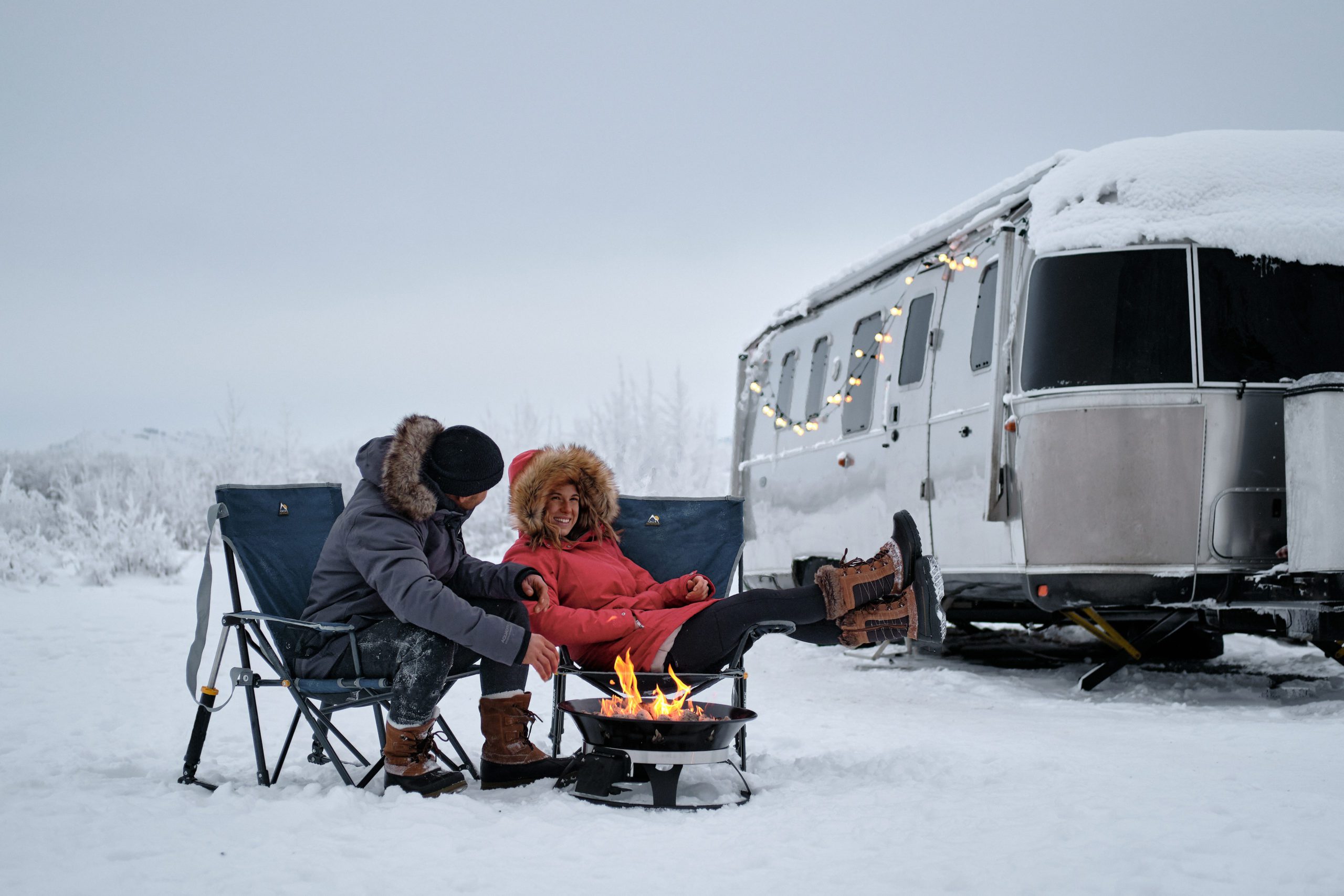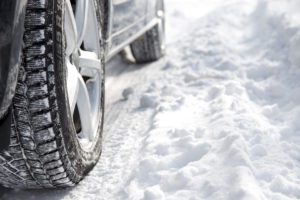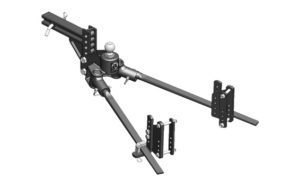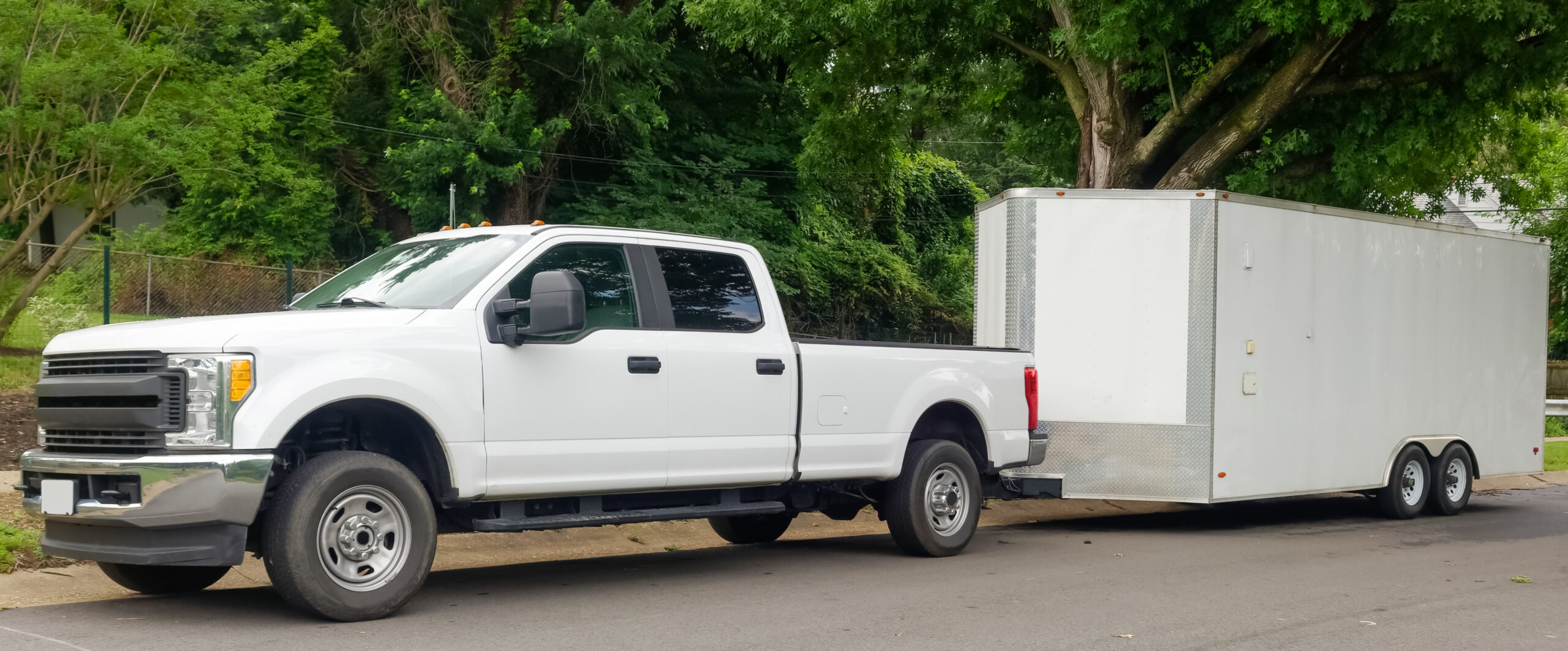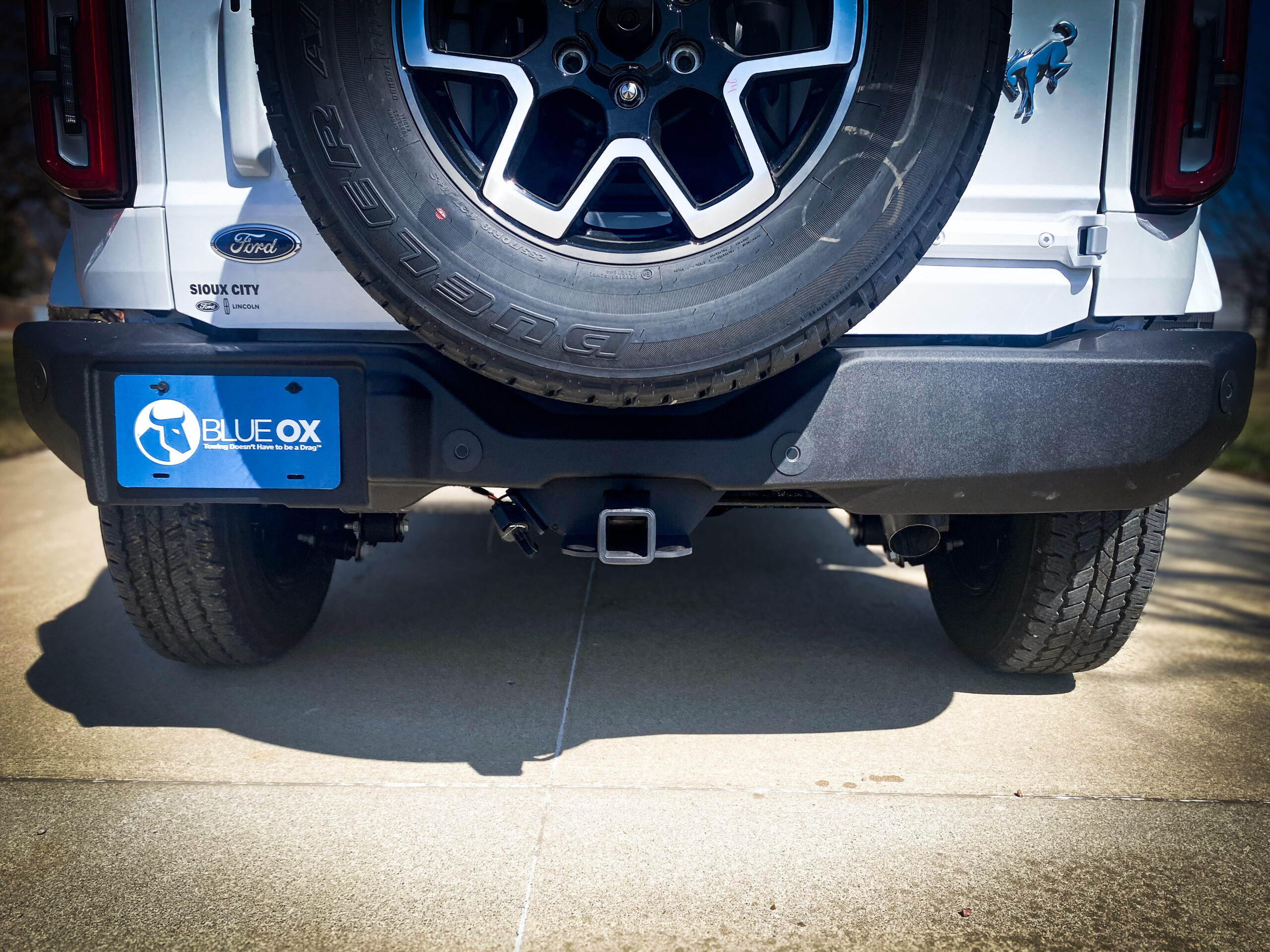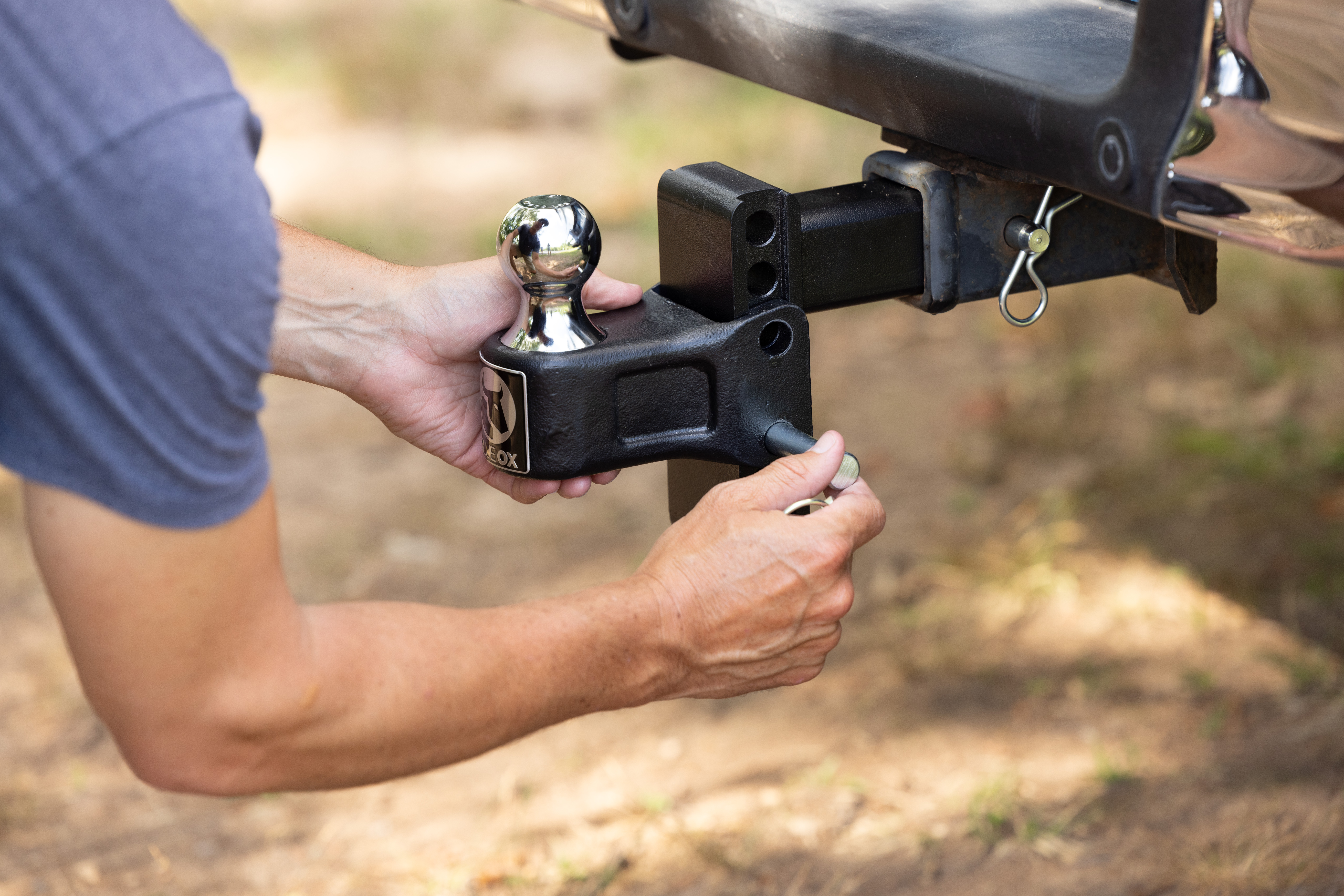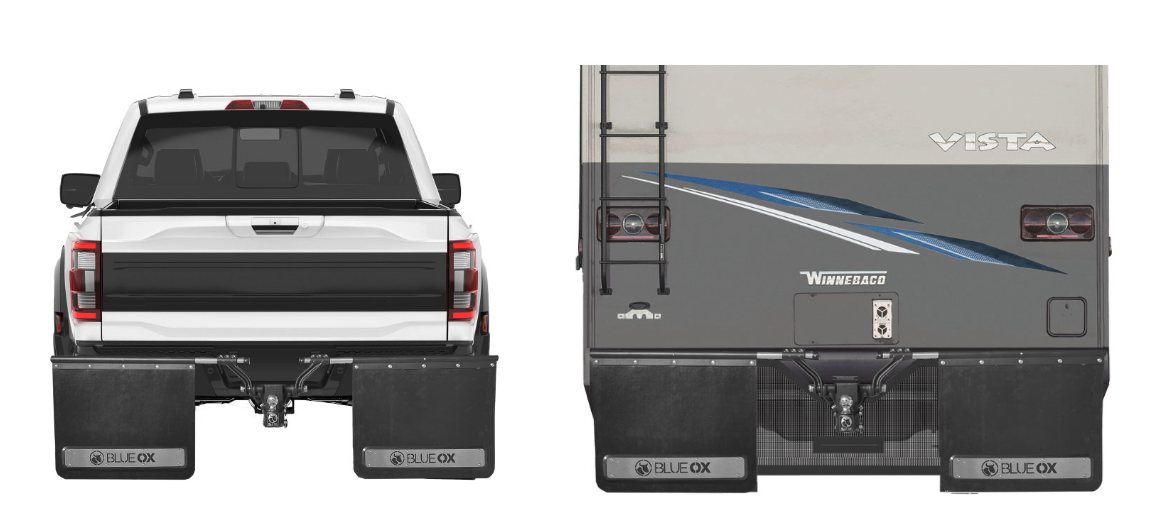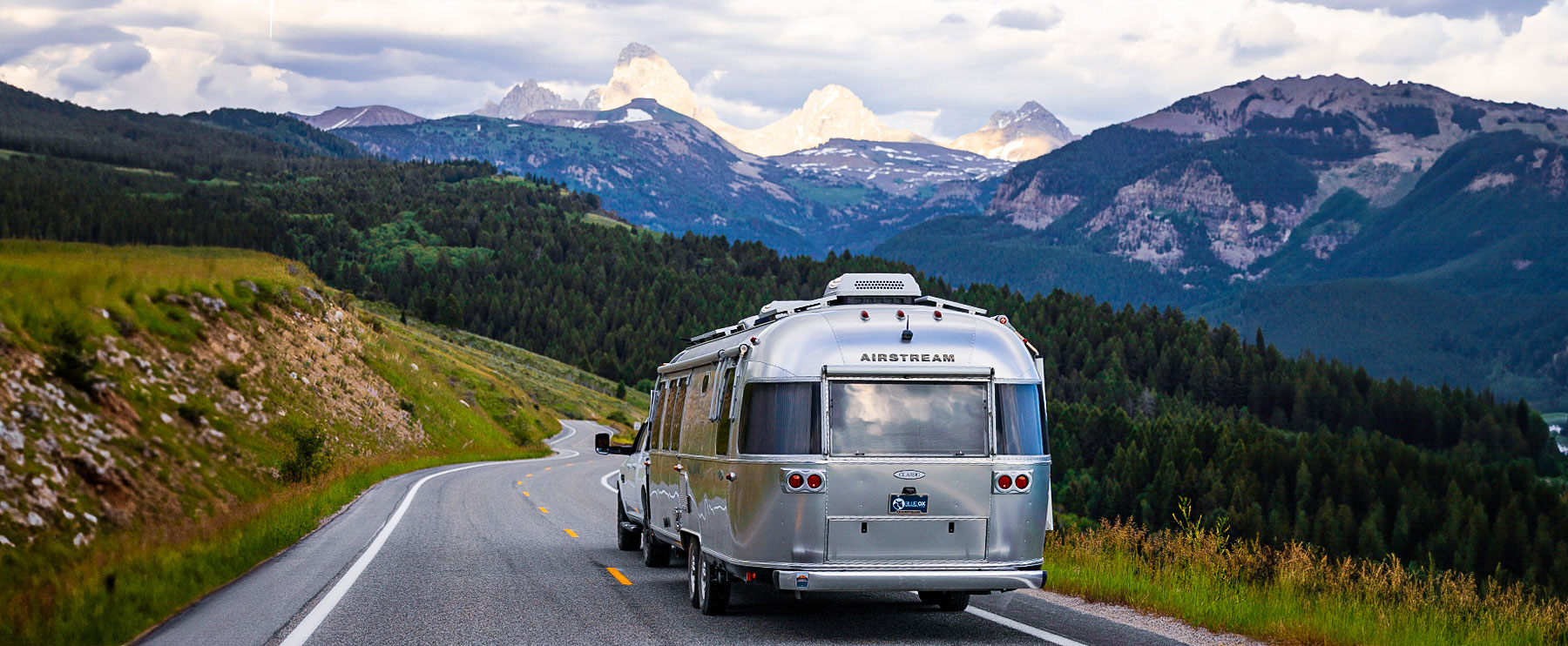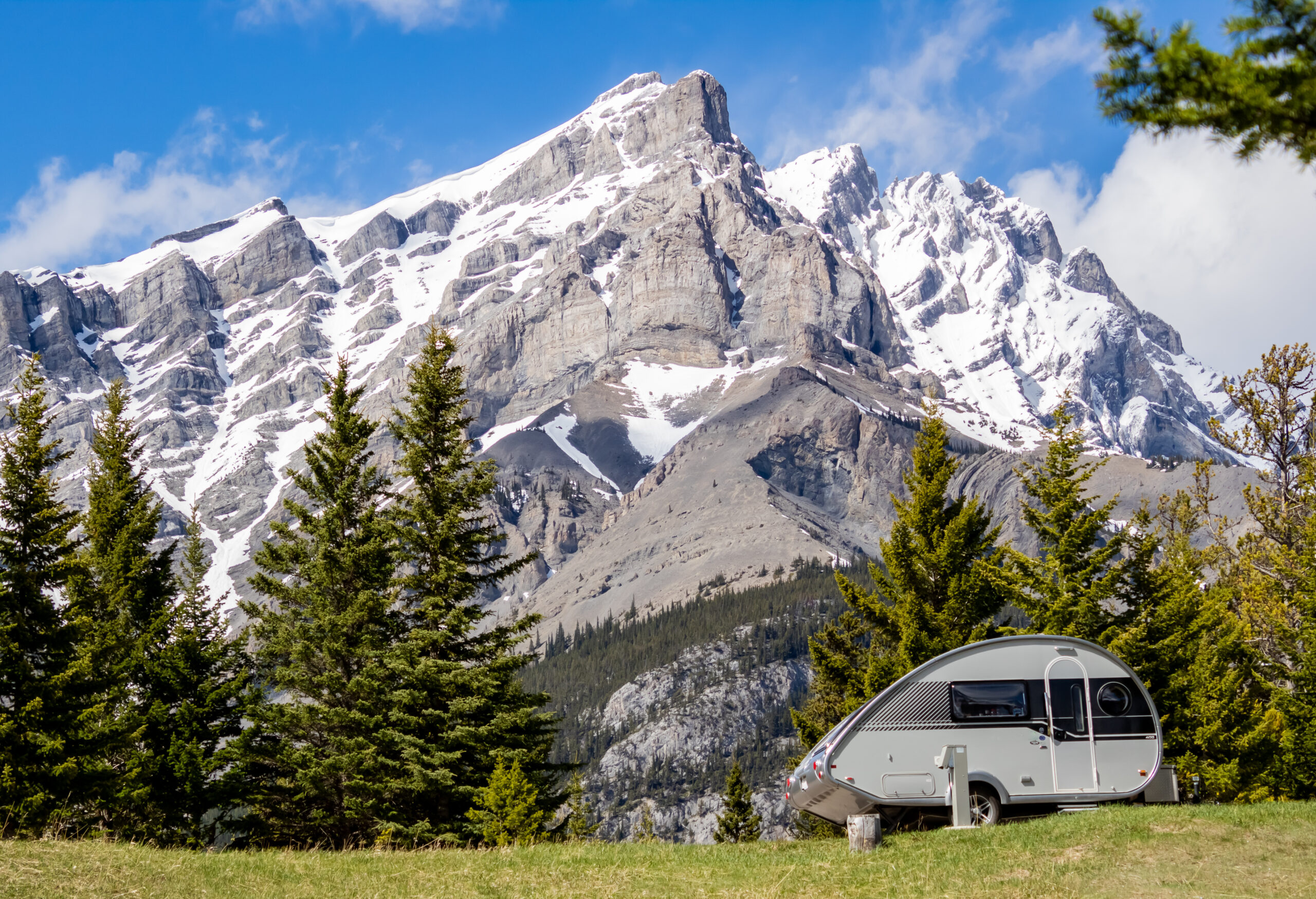Towing a camper in the snow means road conditions are less than ideal. Much like when you are driving in the snow without a camper or travel trailer attached, you should prepare your vehicle and camper before you hit the road and adjust how you drive. Check out these top tips for towing a camper in the snow, which can also apply to towing any trailer in the snow, to help you get to your destination safely.
1. Check Your Weight Capacities
You’ll want to be sure that the weight you’ll be transporting doesn’t exceed the camper’s maximum rated capacity. A travel trailer’s GVWR, or gross vehicle weight rating, may be found on the manufacturer’s plate of the vehicle it is hauling. Towing any type of trailer over this weight might be dangerous or cause damage to the trailer itself. Make sure the weight of the camper, including all cargo, doesn’t exceed your vehicle’s maximum towing capacity as well. You can generally locate this information on the ID tag of your car. Ensure that the tongue weight is within acceptable limits as hitches have a maximum tongue weight that they can handle.
2. Load Your Camper Properly
You’ll want to make sure your camper is balanced as you load it up. Weight and load distribution are critical for safe towing. Maintain a tongue weight of 10% to 15% of the overall weight. The weight of the cargo should be shifted slightly forward on the trailer in order to maintain the proper distribution. You will also want the cargo weight to be even on each side of the camper. As soon as your things are positioned correctly, be sure to secure things. Otherwise, your cargo can shift while you’re driving, which will throw off the weight distribution.
3. Consider Different Tires
Driving in snow and ice will affect your tires ability to grip the road. Traction is a vital part of towing a trailer in the winter, so consider outfitting your camper with winter tires. This can go a long way in giving your trailer the traction you need to turn, accelerate, and stop with confidence. If your vehicle has tires that are less ideal for snowy weather, it will be beneficial to put winter tires on your tow vehicle as well.
4. Get a Maintenance Inspection
Before you hit the road, you will also want to have regular maintenance checks done on your camper and tow vehicle, especially if you are taking a long trip. In doing so, you can feel confident that your vehicle won’t break down and you won’t have any unexpected issues with your camper once on the road or when you get to your destination.
5. Perform a Safety Check
Don’t forget to do one last safety check after you’ve hooked up your camper and are ready to hit the road. You should inspect your tires before every trip to ensure that they are in good condition and that they are properly inflated. A spare tire and the proper lug wrenches for your camper and the towing vehicle should also be available if you were to need them. To ensure your safety, you’ll also need to inspect your brakes and tires. Check for damage, and if necessary, tighten the connections to enable for sharp turns while maintaining enough slack. In order for other drivers to anticipate your next move, make sure your camper’s brake lights and turn signals are functional.
6. Watch Your Speed
This applies when you are towing any type of trailer, any time of year, but especially when towing a camper in the snow. It might sound obvious, but it is easy to slip into your usual driving habits and let your foot get a little too heavy on the gas pedal. High speeds and bad weather can affect the behavior of your camper and could cause trailer sway. Be mindful of how long it will take you to get to your destination and account for the additional time due to simply towing a camper and then add a little more to compensate for the snow.
7. Avoid Using Cruise Control
While cruise control is a very convenient feature, you should never use it while towing in the snow. One reason for this is that by letting the cruise control take over, you might be more likely to lose focus and will react slower in a dangerous situation. The second reason is that cruise control systems are not smart enough to detect what the weather is like, so if the snow is packed, your vehicle could accelerate at the wrong time and potentially destabilize your rig.
8. Have the Right Towing Equipment
We already mentioned swapping your tires when towing in the snow, but you will also want to install a weight distribution hitch. If you are carrying a heavy load, there is a chance you may experience trailer sway. This can be caused by weather, wind, or an unevenly loaded trailer. When conditions are snowy, icy, or wet, your camper and tow vehicle are more likely to need additional support in maintaining control. The risk of trailer sway increases even more when the camper and tow vehicle lack proper weight distribution.
Prevent Accidents & Trailer Sway and in Snowy Conditions
Many trailer sway control devices cannot be used in snowy or icy weather. However, the TrackPro weight distribution hitch can be used in all weather conditions. TrackPro evenly distributes weight over axles of the tow vehicle and trailer and manages sway caused by bad roads, wind, and weather. This highly effective type of trailer sway management is easy to install and is one of the safest, weight distribution hitches on the market today. Reach your destination safely with the help of Blue Ox.

